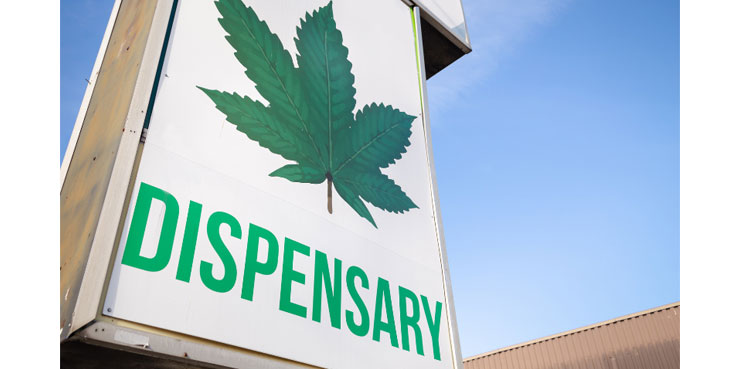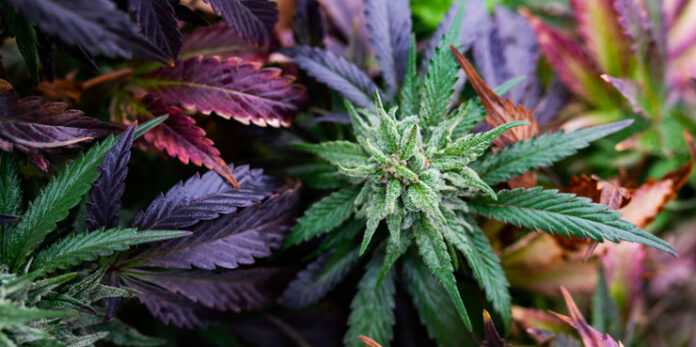The Drug Enforcement Administration (DEA) has made a historic decision — agreeing with the top federal health agency and moving marijuana from Schedule I to Schedule III under the Controlled Substances Act (CSA).
The decision stems from an October 2022 directive from President Biden to the U.S. Department of Health and Human Services and the Department of Justice, requesting they initiate the process of reviewing cannabis’ Schedule I classification, according to Vicente LLP.
A Historic Shift in Federal Drug Policy
The DEA’s announcement marks a historic shift in federal drug policy. For more than 40 years, cannabis has been classified under Schedule I, which is reserved for the most dangerous substances with no accepted medical value and high potential for abuse. The agency’s decision to reschedule cannabis to Schedule III acknowledges cannabis’s medical efficacy and relatively low potential for abuse.
“FDAs acknowledgment of the medical efficacy of cannabis and relatively low potential for abuse is of the most significant shifts in drug policy in this century,” says Vicente LLP partner Shawn Hauser. “That the federal government considered the widespread medical use in state medical marijuana programs underscores the impact of state reforms that have helped millions of patients. This is a very positive step towards the end of prohibition and for public health, and signals that the Biden administration is poised to complete its expeditious review to reclassify cannabis.”
Echoing Hauser’s statement is David Craig, CMO of Illicit Gardens, saying, “Today’s historic rescheduling proves what cannabis enthusiasts have always known—cannabis is a legitimate medicine with proven uses. While this isn’t the dream of full recreational legalization at the federal level many were hoping for, this is the next best thing and one with immediate positive impacts for all cannabis businesses and consumers alike. If there’s one thing cannabis businesses are, it’s resourceful, and with these loosening of restrictions we can finally see what this industry really can do.”

Implications for Legal Marijuana Businesses
If it’s ultimately implemented, marijuana rescheduling will mean that cannabis firms can officially take federal tax deductions that they’ve been barred from under an Internal Revenue Service (IRS) code known as 280E.
“If the DEA indeed reschedules cannabis to Schedule III, it will be the first of many catalyst events for this industry,” states Katan Associates International founder Seth Yakatan. The removal of 280E puts close to $3.5 billion of cash back into the cannabis ecosystem, which will have four immediate effects:
- It will make the strong companies stronger
- It will prolong the death march of companies which are not sustainable long term
- It will be a massive de-leveraging event which will lower the overall cost of capital for the industry
- It will create a flurry of M&A activity.
Alyza Brevard Rodriguez, owner of The Other Side Dispensary in Jersey City, NJ, is very excited for the rescheduling.
“Reclassifying cannabis from a Schedule 1 to a Schedule 3 means so much for our dispensary, The Other Side, and New Jersey,” she says. “It’s not only the potential tax benefits and financial relief through write-offs, especially during the crucial early years of opening a business, but it also opens doors for more research opportunities, reducing stigmatization and legitimizing the industry further. These changes could usher in a new era of acceptance and growth for cannabis businesses, fostering innovation and expanding its role in the economy.”
What Happens Next?
Vicente LLP states that the DEA’s proposed rule is expected to undergo a public comment period, after which it will issue a final rule based on HHS’s evaluation and recommendation, DEA’s own analysis, public comments and the record of any hearing it holds on the subject.
Milan Patel, CEO and Co-founder of PathogenDx, says, “Cannabis moving to Schedule III will trigger federal regulatory agencies to apply national standards to cannabis testing, as opposed to the kaleidoscope of regulations we have been dealing with across more than 30 states. This will allow good manufacturing practices to come into play throughout the whole supply chain and be taken seriously, ensuring the health and safety of patients and consumers, and setting the industry on a path for longevity and success.”
While this move is monumental, it’s not the end of the war on drugs. Federally, marijuana is still illegal. Participants in state cannabis markets would continue to run afoul of federal law and existing criminal penalties for certain marijuana-related activity would remain in force.
“It remains imperative for states to continue their efforts to legalize cannabis and for the federal government to take decisive action to fully deschedule cannabis. This decision may bring an end to certain regulatory burdens such as Section 280E, but its implications for the industry as a whole remain uncertain,” says American Cannabis Collective co-founder Gretchen Gailey.










